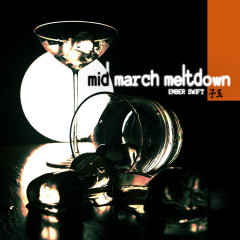The Argument for Marriage
As I’ve spoken about already, we started living together before we got married. Guo Jian wasn’t comfortable with it. It’s still a new concept in China and even though he’s a modern guy who looks like he stepped off the streets of Toronto with his dreadlocks and stage-ready stance, he is still a product of his culture. Up until just over a decade ago, it was technically illegal for couples to live together in China without a marriage license. He grew up with the stigma just like my parents did in North America. In certain ways, socially, China’s about one generation behind, although catching up daily.
He talked about getting married regularly. It was all a little surreal to me, the queer girl who was still trying to figure out this guy who she was mysteriously choosing to spend every day with. I mean, didn’t we have a lot of things to figure out long before marriage should even be a concept on the table?
To be honest, I had previously been very anti marriage. I didn’t believe in it. I thought of it as based on old traditions that didn’t fit me. Besides, I was still bitter that it had been illegal for queers to marry for so long. Even though that law was changed in Canada in 2005, the bitterness still needed more time to leave my mouth.
When Guo Jian started to talk about it like it would happen, I would regularly sweep it aside, annoyed. Gender aside, I have always imagined being a Mother with every partner I’ve ever fallen in love with, and so one day I suggested we perhaps have a child first and consider marriage later. I see nothing wrong with that. He whipped his head around with a look of utter shock and horror. “Absolutely not possible.” His eyes flashed bulbs of disbelief.
That was clearly my Western-ness talking. Ac-hem.
He took a few angles over the months, both in that springtime three-month period of trying out our relationship as well as during my next “trip” to China when I came for six months starting in September of 2008. What surprised me every time he brought up marriage was my awareness that I was still in the trying-it-out phase and he was so clearly sure. I was both complimented as well as utterly freaked out. I mean, aren’t men supposed to (stereotypically) be the ones who are slow to commit? Once again, proof that gender roles are not fixed, here or anywhere.
The first angle he took to convince me that marriage was a good idea was this:
2010 was the year of my Chinese zodiac birth sign: the tiger. It is very inauspicious to marry in your birth year, he warned, ominously. Elders would shudder. Why not get married in 2009 rather than waiting for 2011? 结越快,生越快 Jie yue kuai, sheng yue kuai (Sooner the marriage, sooner the child.)
My response= “Hhhm…”
Marriage in Chinese culture happens faster than it does in Western culture. This is about legitimizing love and partnership. The longer we lived together, the less our friends and family would respect our love as legitimate.
My response= “Hhhm…”
Marriage has no connection to religion in Chinese culture; it’s a civil union. The ceremonies are often conducted outdoors or in restaurants. No place of worship. No covenant between me and God and my spouse. No religious threesome.
My response= “Well, that’s good then…”
Unlike in the West, weddings aren’t about 物质 wuzhi (materialism). There are no registries. There are no gifts.
My response= “But it still must cost a lot to host the event itself, right?”
The community covers this cost. It’s a cyclical tradition. His parents have been to many weddings over the years and all those people would then come to ours. Each time his parents brought money to those events and their friends had recorded how much. They, in turn, would return the financial favour to the same dollar figure in a wedding 红包 hong bao (red envelope). The actual event wouldn’t cost his family anything.
My response= “So it’s not the bride’s family that pays?”
No, it’s the groom’s. His family would handle everything.
My response= “Hhhm… That’d be good news for my folks… But what are we even talking about this for? It’s way too soon!”
The constant discussion was getting me used to the idea, that’s true, but eventually, I settled on a rather weak but culturally relevant come-back whenever he mentioned it:
“You haven’t formally asked me yet!”
In Western culture, there’s a proposal. In Chinese culture, people usually just agree to get married. All of his logical arguments that he was throwing my way (in a fairly well calculated and spaced-out manner, I might add) were vacuuming the romance out of it for me.
He balked at my expectation of a proposal. “That’s not my culture! You’re in China! Do as the Chinese do!”
I loved his childish, indignant response because it gave me the perfect “out.” I would just nod and say, “You’re right, it’s not your culture; it’s mine. I’m from my culture no matter where I am in the world. The environment doesn’t change me. When you go to Canada, aren’t you still Chinese?”
These kinds of rhetorical questions will always end a discussion with him. He hates the patronizing, educating tone that I get when I’m arguing. He doesn’t want a teacher, he says. Sometimes you need a teacher, I say. It’s obnoxious, I know. That’s the ageist in me.
But, I liked when it ended, personally. I had pulled out my “end discussion” weaponry.
After all, we hadn’t even been together for a full year yet! It was all happening a bit too soon.








